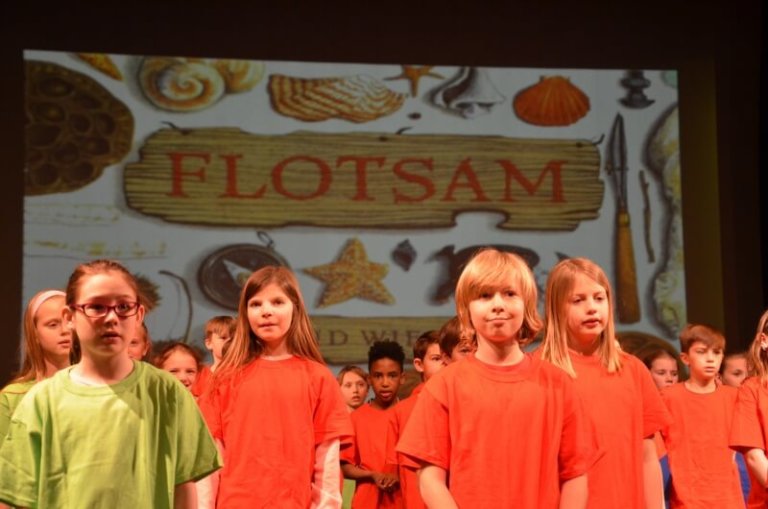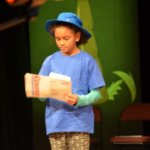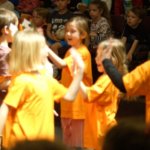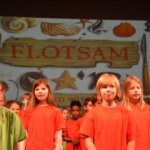In 1962, President John F. Kennedy unabashedly campaigned for public support of the arts. He alluded to two earlier presidential requests of the same nature: one by Franklin Roosevelt, who in 1941 insisted on dedicating the National Gallery in Washington; the second by Abraham Lincoln, as he shouldered criticism during the third year of the Civil War when he gave the go-ahead for the completion of the Capitol dome. Lincoln’s response to the rumblings was, “If people see the Capitol going on, it is a sign that we intend this Union to go on.” I love Kennedy’s take on Lincoln’s perspective. He said that Lincoln understood that “the life of the arts, far from being an interruption, a distraction in the life of a nation, is very close to the center of a nation’s purpose and is a test of the quality of a nation’s civilization.”
These stories took on new relevance for me recently, as I walked out of our theater with a Lower School parent at the culmination of the Fourth and Fifth Grade production of Imagine, an original piece of theater with music, song, and dance under the direction of Lower School music teachers, Nora Golden and Alicia Knox. What was unique about this production, besides the well-instructed use of Orff instruments, beyond the singing and choreography all incited by students, was the fact that the literature chosen as the foundation for creativity—Flotsam (David Wiesner) and The Whisper (Pamela Zagarenski)—are books without words. All lines, all script, every single utterance was written by our students. As this proud parent and I walked to our cars in the glow of this very innovative, child-centered performance, we both exclaimed how nice it was to see something original, rather than the same scripts rewritten again and again, and entertainment that has become both predictable and redundant. He commented that in a world that seems both distracted and uncertain, that perhaps we need these types of theatrical events more than ever. I could not agree more. This production was indeed original, so original that it sparkled—with thought, productivity, insight, innovation, and that sprinkling of the creative dust of children before they become afraid to lean in and take artistic risks. They were at home in a theatrical space and comfortable in their skins.
As CA solicits your support for the renovation of our theatrical space, not just for these children, but for all the original artists down the road, I think about the line written by a fifth grader and given to the character of “Owl” in this production. He flies and flies in search for a place, and I quote, “where he can feel valued and accepted.” I was stunned by this line, not because it was written by a child, but because it made me realize that these two elements—value and acceptance—define how and where we will teach young people to perform for the rest of the 21st century. It is exciting to imagine that our facility will grow with their education and perception of what it means to be performing artists in a space of beauty and possibility. This is our dome, and we, too, believe that a new facility would be a vote in favor of the performing arts at CA, which are second to none and will continue to thrive and exalt beyond our present legacies.
Albert Einstein said, “Logic will get you from point A to B. Imagination will take you everywhere.” As many arts programs across the country are branded as interruptions, and whittled down by diminishing endowments, budget cuts, and lackadaisical interest, it is important that CA makes a bold stand for the significance of the arts in the civilization of our children’s education—that we are moving forward in program, thought, and facility with eagerness and anticipation of what is yet to come. We have imagination. We have purpose. We look forward to the completion of our “dome.” After all, it is these innovations, these original experiences in performance, these bastions of creativity that will become the valued and accepted currency of the future.
Editor’s note: If you would like to see architectural renderings of the proposed theater space, or if you would like to support the capital campaign with a gift, please visit www.caseeitthrough.org or call Bob Schmitz, 303-914-2507 for more information.






